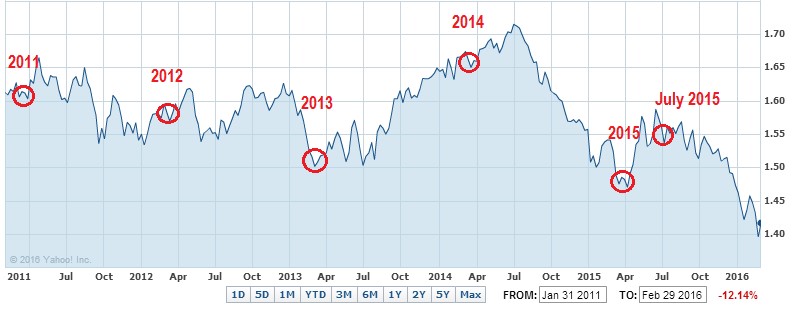Online trading services provider easyMarkets has been going from strength to strength under the leadership of CEO Nikos Antoniades. After nearly two years at the helm, Nikos reflects on the highlights of his tenure, the diversity of his staff team and the importance of being happy at work.
1. How long have you been CEO of easyMarkets and how has the company developed under your leadership?
I stepped into the role of CEO in June 2014. A lot has gone on in that time. We developed and launched our new website, blog and trading platform. We also enhanced the number of markets our clients can trade and upgraded our brand from easy-forex to easyMarkets to reflect that.
On an operational level we’ve moved towards a greater focus on Business Intelligence and automation. We reorganised our client-facing teams into three categories – globally based call centre staff that provide first point of contact with the client; client relationship managers that train and support our traders; and VIP relationship managers that provide a highly individualised level of service.
From a marketing perspective we refocused on more direct acquisition via online channels through to a comprehensive content management strategy to provide high-quality content.
We also restructured our partner programme and are soon launching our new forexAffiliate site for introducing brokers and online affiliates. We’ve become more competitive with our compensation packages and offer more tools and widgets for the partners to promote us.
2. What were your aims and ambitions when you took over as CEO for the company? Have you achieved them yet?
Every CEO comes into a company knowing they can bring certain values and standards with them. I’m a numbers guy and I need supporting data to make decisions, whether they impact on the business today or in 3 years’ time. And each company needs different approaches depending on where they are in their life-cycle. My aims are to solidify our foundations, streamline our operations, be more data driven and introduce automation so we can better focus our energies on delivering what traders need.
So far I’m satisfied with our progress. The foundations for a lot of the above have been laid and we’re already beginning to see the fruits of our labours across all our key operational metrics.
3. One of the first things many people notice about the easyMarkets team is its diversity. What do you think that having so many nations represented in the staff team brings to the company? How do you celebrate the team’s diversity within the office environment?
Our clients are based in over 160 countries around the world. We need the talent and skills in our employees to reach, engage and retain those clients. It makes for a vibrant and diverse office environment and personally I love it. I love the unique perspectives brought to the table and I particularly enjoy the many celebrations we have – including celebrating the Chinese Moon Festival, the Polish national day and our Brits this year celebrated Pancake Day. Recently we celebrated carnival which kicked off with a BBQ at work and was followed by a week of dressing up in costumes. Most of the celebrations are around food – who can complain?
4. What are the most important values in the modern workplace and why?
Be happy to come to work. Try to provide a satisfying work environment where innovation and initiative are encouraged and where no one is afraid to make a mistake – cos that’s usually when we learn the most.
5. How do you feel that the world of investment is changing – does each new generation of traders expect more than the last?
There’s a lot more knowledge about the industry than before. Traders are demanding better technology, responsive mobile friendly platforms and a wider product offering. They’re also more educated about regulations and their rights – which is a good thing in my view.
6. easyMarkets has recently rolled out a great new brand identity. What’s next for the company?
We’ve rolled out a lot of new products and features recently and we’ll be looking to optimise them. We want to provide the best risk management platform for our clients so more safety features for when they trade are on the way. We’re developing a new trading app that will enable us to engage even more with our clients. And we’re investigating the introduction of individual stock trading – that’s a really exciting new project but quite a few months away yet.
For further details visit www.easymarkets.com, email pr@easymarkets.com or call +44 203 1500 748.
Risk warning: Forward Rate Agreements, Options and CFDs (OTC Trading) are leveraged products that carry a substantial risk of loss up to your invested capital and may not be suitable for everyone. Please ensure that you understand fully the risks involved and do not invest money you cannot afford to lose. Our group of companies through its subsidiaries is licensed by the Cyprus Securities & Exchange Commission (Easy Forex Trading Ltd- CySEC, License Number 079/07), which has been passported in the European Union through the MiFID Directive and in Australia by ASIC (Easy Markets Pty Ltd -AFS license No. 246566).




